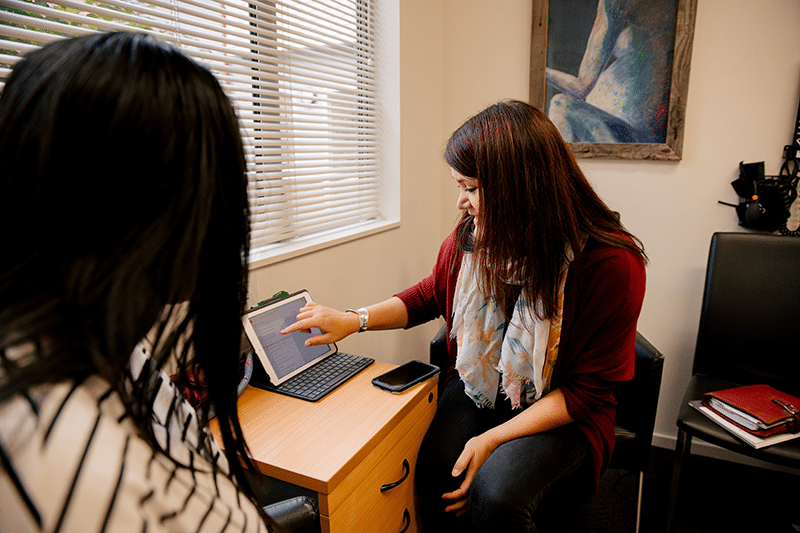During birth the perineum stretches to make room for the baby to be born. The perineum is the area of skin between the opening of the vagina and the anus (back passage). During vaginal childbirth this area may tear or graze. For the majority of women these tears and grazes are minor and will heal quickly. They may be painful for a short while – particularly when passing urine when stinging can be experienced. Pouring or spraying body temperature water over the perineum, while passing urine, can provide some relief. Sitting in a few inches of warm water will also reduce the stinging sensation. Leaning forwards while passing urine can also reduce the stinging as the urine is less likely to be in contact with the tender area.
Caring for your wound
Tears that require stitches (which will usually dissolve in 1-2 weeks) can be quite sore and good hygiene is important in the days after birth. Showering at least once a day and using only water to carefully clean the perineal area is recommended – pat gently to dry the area with a clean towel. Sanitary pads need to be changed regularly. Drinking lots of water can help with avoiding constipation. A healthy diet with fibre – such as fruit and vegetables – is recommended. Regular pain relief can also help.
Applying an ice pack for no more than 10 minutes at a time (and at least 4 hourly) to the perineum can ease discomfort and help reduce any inflammation. There are some herbal preparations such as hypericum and calendula that may help healing and provide comfort. It is advisable to discuss whether these would be appropriate for you with your midwife or a herbalist. Try to do pelvic floor exercises as often as you can, this helps to increase blood flow to the area and encourage healing.
Bowel Motions
Thinking about passing the first bowel motion after birth can be stressful. It may be a few days after birth before this happens. Putting your feet on a footstool, or something similar, that raises your knees to above your hips can help. Avoid straining and take your time. Passing a bowel motion will not affect your stitches.
Rest
Take the time to rest. Rest is important for your recovery and for the healing process. Try to sit or lie in positions that feel most comfortable for you and do not cause pressure on your perineum.
Here is a link to more information about perineal tears from Healthinfo – https://www.healthinfo.org.nz/patientinfo/77538.pdf
